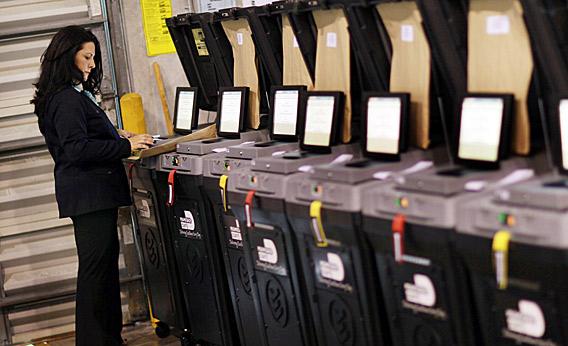Suppressing the Vote
< < Go Back
By THE EDITORIAL BOARD,
If a federal judge’s disappointing ruling this week on a voter registration case is allowed to stand, state lawmakers around the country could well make it harder for eligible citizens to register to vote in federal as well as state elections.
State officials in Kansas and Arizona had sued the United States Election Assistance Commission for refusing to include their strict proof-of-citizenship requirements on the federal voter registration form the commission prepares under the National Voter Registration Act, also known as the “motor voter” law.
The federal form requires only that voters state under oath that they are citizens, and while the commission includes certain state-specific instructions on the form, it denied the request by Kansas and Arizona because it found no evidence that noncitizens registering to vote was a “significant problem” in either state.
Federal District Judge Eric Melgren ruled on Wednesday that the commission had acted “in excess of its statutory authority” because the federal law “has not pre-empted state laws” that require documents proving citizenship. Under the Constitution, states have the power to decide who may vote, while the federal government has the final say in how, where and when voting occurs.
But the legal dispute should not distract anyone from recognizing the underlying purpose of laws like these and their close relative, voter ID laws. They are intended to keep eligible voters from the polls.
Republican lawmakers who work to impose higher bars to voting — either through proof-of-citizenship or voter ID laws — are well aware that many of those otherwise-eligible voters who struggle to come up with the required documents, which include a birth certificate, passport or driver’s license, are more likely to vote Democratic.
In recent months, it seemed that judges were beginning to see through the pretense of such laws, whose proponents insist they are necessary to protect “election integrity” despite the lack of any significant evidence that voter fraud of any kind exists.
Nevertheless, Judge Melgren accepted at face value the claim by Kansas and Arizona that only “concrete proof of citizenship” can allow them to determine whether a voter is eligible.
Republican-controlled state legislatures could respond to their aging, shrinking voter base by appealing to a wider range of voters. Instead, they write off entire segments of the public and then try to keep them from the polls, under the guise of battling fraud and illegal immigration. The courts have more than enough evidence by now, and they should see this ruse for what it is.
More From The New York Times:




